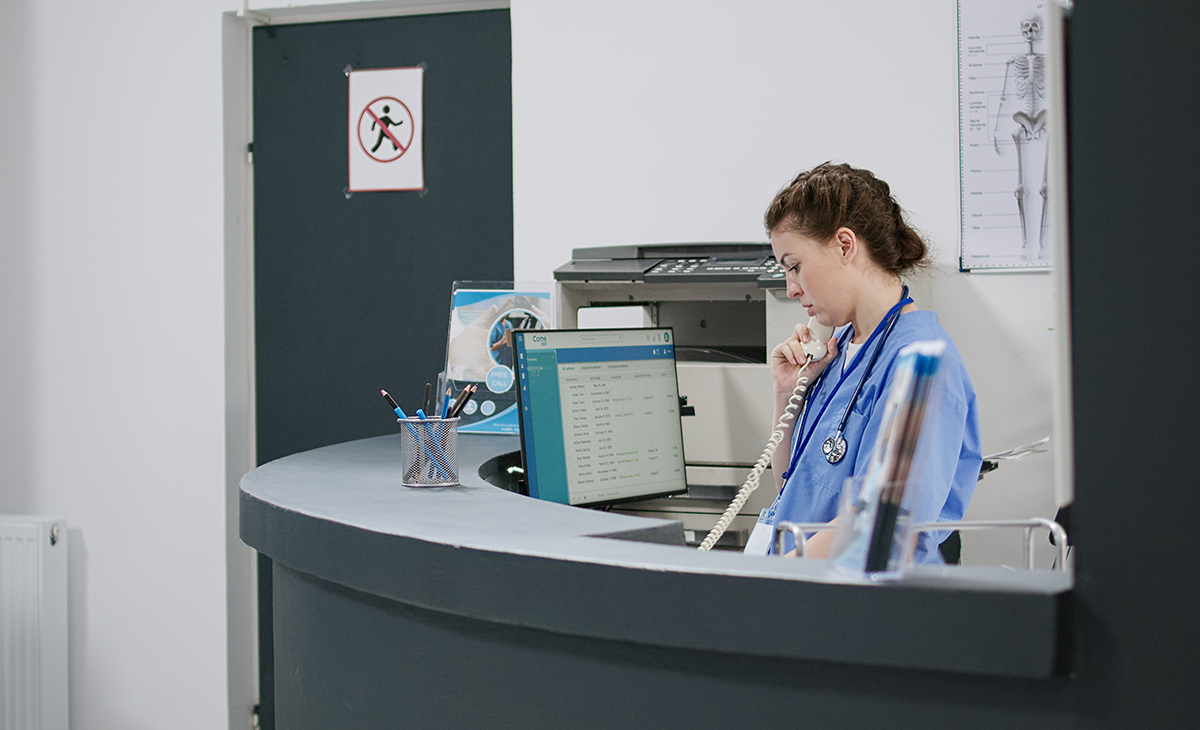Effective communication is the backbone of quality healthcare. Traditional phone systems often struggle to meet the fast-paced and dynamic demands of modern healthcare organisations such as GP surgeries and primary care networks (PCN’s). This can lead to inefficiencies, missed calls, and patient dissatisfaction.
A VoIP (Voice over Internet Protocol) telephone system presents a robust solution, offering a wide range of advantages tailored to the healthcare sector. Here we explore the main benefits of a VoIP phone system for the healthcare industry:
1. Cost Efficiency
VoIP systems use internet-based calling, reducing the need for multiple phone lines and significantly cutting down on call costs. This cost-effective approach allows healthcare organisations to allocate their resources more effectively, ensuring that budgets are focused on patient care rather than expensive communication systems.
2. Enhanced Mobility and Flexibility
Healthcare professionals often operate across multiple sites or on the move. VoIP enables seamless communication on various devices—smartphones, tablets, and computers—ensuring that staff stay connected regardless of location. This flexibility is particularly beneficial for telehealth services and remote consultations.
3. Advanced Call Management
VoIP phone systems come with features that streamline patient interactions, such as call forwarding, automated attendants, and voicemail-to-email. Calls can be efficiently routed to the appropriate department or medical professional, reducing wait times and improving response rates.
4. Scalability
As healthcare organisations grow, their communication needs evolve. One of the benefits of a VoIP phone system is that it allows for easy scalability, ensuring that additional lines or users can be added without the need for costly infrastructure changes. This makes it a future-proof solution for expanding healthcare facilities.
5. Integration with Healthcare Systems
A VoIP system can integrate seamlessly with Electronic Health Records (EHR) and appointment scheduling software, streamlining communication between departments. This integration enhances workflow efficiency, reduces administrative burdens, and improves patient coordination.
6. Improved Patient Experience
Ensuring patient calls are handled efficiently is crucial for satisfaction and retention. VoIP technology enables features such as call queuing, priority routing, and self-service options, all of which contribute to a better patient experience. Faster response times and seamless communication can significantly enhance patient trust and engagement.
7. Enhanced Security and Compliance
Security is paramount in healthcare communications. Modern VoIP systems offer encrypted connections and secure access controls, ensuring patient data remains protected. With compliance features tailored to meet healthcare regulations, VoIP systems help organisations maintain confidentiality and regulatory adherence.
8. Reliable Disaster Recovery
VoIP systems are cloud-based, meaning they are not reliant on local hardware. In the event of a power outage or system failure, calls can be rerouted to alternative locations or mobile devices, ensuring that critical communications remain uninterrupted.
Conclusion
For healthcare organisations looking to modernise their communication infrastructure, Daisy Communications’ Patient Line offers a tailored VoIP solution designed to meet the unique needs of the healthcare sector. With advanced call management, enhanced security, and seamless integration, Patient Line helps streamline patient interactions, reduce administrative challenges, and improve overall efficiency.
Discover how the Patient Line VoIP telephone system can transform your healthcare communication.
